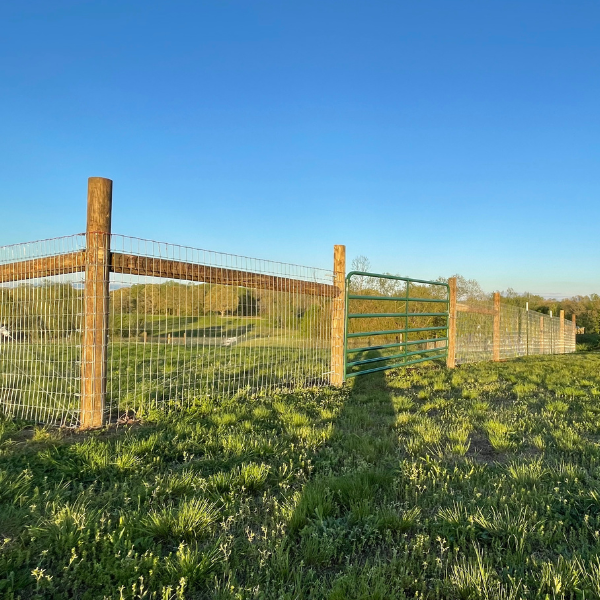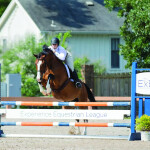Of the many things that are necessary to keep horses, fencing may be at the top of the list of things that must be carefully and safely designed. While some are fortunate enough to have the tools and talent to build their own fences, most will need to hire a professional to get the job done. As with all professional services, get references, and a detailed estimate before hiring someone.
Zach Burrows of Local Fence in Rossville, Tenn., grew up in the business learning from his father, Steve Burrows, another local fencing specialist. After college and a short career in agriculture, Zach decided to turn to building fencing full time. He has an easy demeanor and readily shares his knowledge while eagerly seeking input from clients. A master in his craft, he builds fences to USDA standards on all jobs, whether for horses or other livestock. Following are his essential notes for horse owners looking to add or replace fencing.
Four Safest Horse Fence Materials: 2”x4” woven wire (not welded), coated high tensile rails (e.g. Centaur Fence), four-rail fence (wood or vinyl), Electrobraid (heavy woven electric rope). Many fencing options will have better longevity if a board is added at the top or if an electric strand is added to keep horses from leaning on the top. Sometimes an electric wire mid-height can keep little ponies from rubbing on the fencing.
Fencing Mistakes: not using proper materials; sacrificing safety for cost (keep project within budget without sacrificing integrity and safety of the fence); not considering traffic patterns and potential mud areas; not keeping fence line clear of weeds, trees, and vines; buying cheap materials; hiring inexperienced installers.
Safety Concerns For Horse Fencing: sharp corners, sharp objects/materials (use T-post caps, be sure any wires are tied off), improper gate, weak/cheap gate hardware, poorly mounted gate, guide wires from power poles should not be within pasture (or fence them off from horse access), avoid tight areas (corners less than 90 degrees), never use barbed wire, regularly inspect fence for safety and strength.
Fencing is an investment and not a place to skimp on quality of materials or construction. While prices and aesthetics can vary widely by style, material, and contractor, a durable fence keeps your horse safely at home, adds value to your farm, and is a thing of beauty in the eye of a horse owner. Find the fence that fits your budget and enjoy the view!








